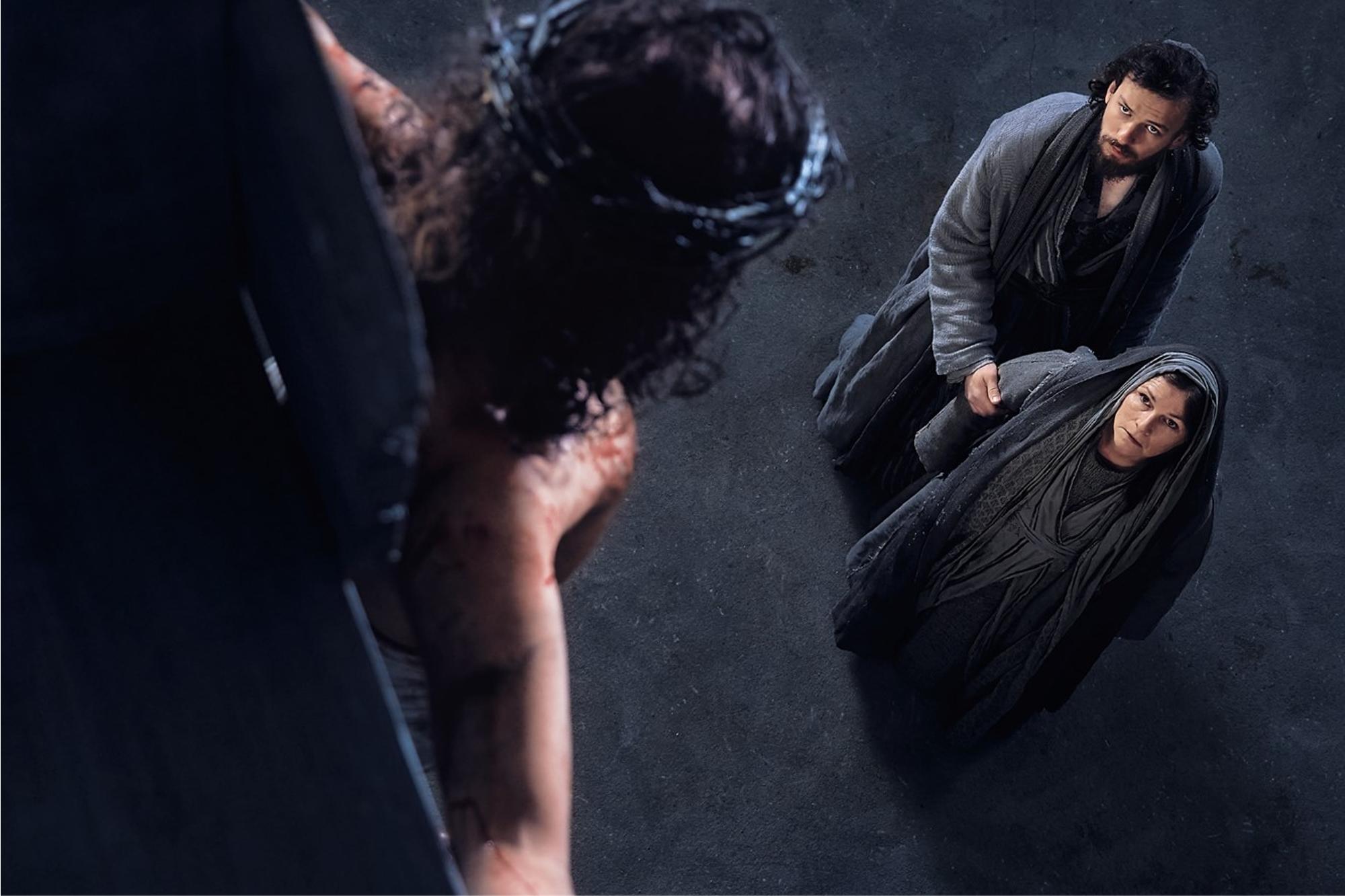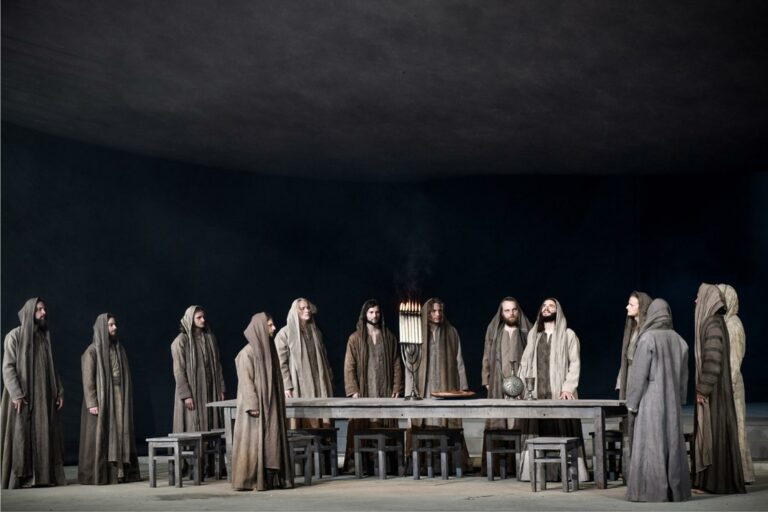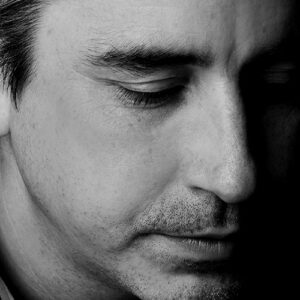
The Theatre Backpacker
OBERAMMERGAU PASSIONSSPIELE: EXPLORING A SACRED THEATRE 9
By Jack Paterson | Part 9 of 10
Date: June 2022
Locations: Oberammergau, Germany
Activity: Performance
I put my pen and notebook away for the second act of performance and allowed myself to be swept away in this tradition and song from another culture, another place, another belief set, and another time. Even with the contemporary adaptations and changes, the Passionsspiele traditional structure of scene, chorus, and living images remain the same. Its core purpose of community gathering and spiritual engagement with Christian scripture remain as well.
When working with traditions and stories from the past, one is often confronted with beliefs and world views that rub uncomfortably with contemporary perspectives, morality, and historical understanding. These are practices and stories from long ago, from different peoples, of different times – thus, arguably, always of a different culture, and their art reflected their needs and the worldviews of their time and place.
Several hundred years ago, the Passionsspiele was performed by Catholic farmers isolated in the mountainside. Passion plays were the few opportunities for local people to engage with their spiritual and religious stories in their own voices, their own their own languages, and their own words, rather than the Latin of the pulpit. For those of the Christian faiths, this interaction remains true today.
In a DW article “Oberammergau – A Village and its Passion”, actor Andrea Hecht, playing the virgin mother for the second time, says it has completely changed her view of the Virgin Mother from an enraptured mystic to a gutsy woman who followed her son’s path. For the actor playing playing Maria Magdalene, Barbara Schuster, performing in the play deepens her faith. It is, for many of the people of Oberammergau and many of their audience members “a Passion”.
Yet it has also become much more. It is an economic generator for the village and region, an intergenerational community event stretching beyond the originating belief set, and it is an active bridge triggering and engaging in contemporary interfaith and intercultural dialogues.
In his article for “How Hitler’s Favorite Passion Play Lost Its Anti-Semitism” (The Atlantic), A.J. Goldman asks “how much innovation and passion will be required to sustain this monumental enterprise for another century?”
Much has changed since Joseph Krauskopf wrote his “A Rabbi’s Impressions of the Oberammergau Passion Play” in 1901. No longer an isolated catholic village in the mountain mists, the wood carvers and farmers are joined by teachers, business people, and laborers, from across faiths and heritages, and all walks of Oberammergau life.
Despite the spiritual nature of the Passionsspiele’s origin – or perhaps because of it – this production was very much a human story about human beings in all their imperfections. Contemporary issues of political unrest and activism, of war and oppression, of displacement and exile, all ripple through the production.
As a theatre artist, there are many lessons to be learnt here. How does one share a tradition intended spessifcly for one group of people, from one place, and one worldview with a greater plurality across classes, heritages, cultures, and identities? How does one maintain these traditions yet address the human wrongs of the past? How do we engage in the theatrical traditions of others or include others in our own? How do we forgive each other in our imperfections and mistakes along the way? How can we learn from the past? How can we continue to share in each others’ songs and learn from each other now and for the future?
Balancing maintaining traditional practices and contemporary views in a global world is difficult, but necessary. The past – all our pasts – informs the present, and if we are ever going to be able to embrace our human commonalities, human frailties, and our human differences, it is an exercise worth doing.
For Stückl, the work will never be done.
“I believe we are never at an end. We have to keep working to get a normal relationship with each other.”
NEXT: EPILOGUE 2023

Oberammergau Passionsspiele: Exploring a Sacred Theatre – Part 7
Oberammergau Passionsspiele: Exploring a Sacred Theatre – Part 8


Jack (he, him) is an award-winning devisor, director, translator, and creative producer whose work and practice have taken him across Canada, Europe, the United Kingdom, and around the world. Projects have ranged from contemporary devising, multi-disciplinary, cross-cultural, and multi-lingual experiences to new works & texts, contemporary approaches to classical theatre and main stages. Shows under his direction have garnered over thirty theatre award nominations with many wins. He trained at leading international theatrical institutions including Circle in the Square (NYC, USA), GITIS The University of Performing Arts (Moscow, RU), ISI Indonesian Institute of the Arts (Bali, INA) and received his Masters in Fine Arts from the renown East 15 Acting School and University of Essex (London, UK).
Read Full Profile© 2021 TheatreArtLife. All rights reserved.

Thank you so much for reading, but you have now reached your free article limit for this month.
Our contributors are currently writing more articles for you to enjoy.
To keep reading, all you have to do is become a subscriber and then you can read unlimited articles anytime.
Your investment will help us continue to ignite connections across the globe in live entertainment and build this community for industry professionals.